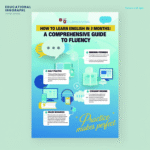Studying abroad is a transformative experience, offering unparalleled opportunities for personal growth, cultural immersion, and academic advancement. However, the financial aspect of living in a foreign country can be daunting. From tuition fees to daily living costs, managing expenses requires careful planning and strategic decision-making. This comprehensive guide provides detailed strategies to help international students effectively manage living expenses while studying abroad, ensuring a fulfilling experience without financial strain.
- Understanding the Costs of Studying Abroad
- Creating a Realistic Budget for Studying Abroad
- Choosing Affordable Accommodation Options
- Saving on Food and Groceries
- Navigating Transportation Costs
- Managing Healthcare and Insurance Costs
- Earning Income While Studying Abroad
- Accessing Scholarships and Financial Aid
- Leveraging Student Discounts and Benefits
- Cultural and Social Activities on a Budget
- Managing Currency and Banking Costs
- Coping with Financial Stress
- Long-Term Financial Planning
- Suggestions and Recommendations
- FAQs
Understanding the Costs of Studying Abroad
Before embarking on an international academic journey, it’s essential to grasp the full scope of expenses involved. Studying abroad encompasses more than just tuition; it includes accommodation, food, transportation, healthcare, and leisure activities. Each destination country has unique cost structures, influenced by its economy, currency strength, and lifestyle expectations.
- Tuition Fees: These vary significantly by country and institution. For instance, universities in the United States often charge higher tuition for international students compared to local students, while countries like Germany offer low or no tuition fees for public universities.
- Accommodation: Options include on-campus dormitories, private rentals, or homestays, with costs fluctuating based on location and amenities.
- Living Expenses: Daily necessities such as food, transportation, and utilities form a significant portion of the budget.
- Health Insurance: Many countries require international students to have comprehensive health insurance, which can add to expenses.
- Miscellaneous Costs: These include visa fees, travel expenses, and personal spending on entertainment or cultural experiences.
By researching the cost of living in the destination country, students can create a realistic budget. Websites like Numbeo or Expatistan provide cost-of-living comparisons, helping students anticipate expenses in cities like London, Sydney, or New York.
Creating a Realistic Budget for Studying Abroad
A well-structured budget is the cornerstone of financial stability while studying abroad. To manage living expenses while studying abroad, students must account for both fixed and variable costs and allocate funds accordingly.
Steps to Build an Effective Budget
- Assess Income Sources: Identify all available funds, including scholarships, grants, personal savings, part-time work, or family support.
- List All Expenses: Categorize expenses into fixed (rent, tuition) and variable (groceries, entertainment) costs.
- Use Budgeting Tools: Apps like YNAB (You Need A Budget), Mint, or PocketGuard can track spending and ensure adherence to financial goals.
- Plan for Emergencies: Set aside 10-15% of the budget for unexpected costs, such as medical emergencies or travel expenses.
- Review Regularly: Adjust the budget monthly to reflect actual spending patterns and income changes.
For example, a student studying in Canada might allocate CAD 1,200 monthly for rent, CAD 300 for groceries, CAD 100 for transportation, and CAD 200 for personal expenses, totaling CAD 1,800. By comparing this to their income, they can identify areas for savings.
Budgeting Tips for International Students
- Prioritize Needs Over Wants: Focus on essential expenses like rent and food before spending on non-essentials.
- Track Spending Daily: Use a spreadsheet or app to monitor daily expenditures and avoid overspending.
- Set Financial Goals: Aim to save a small amount each month for future expenses, such as travel or emergencies.
- Seek Student Discounts: Many countries offer discounts on transportation, cultural events, and dining for students with valid IDs.
By creating and sticking to a budget, students can avoid financial stress and focus on their academic and cultural experiences.
Choosing Affordable Accommodation Options
Accommodation is often the largest expense for international students. Selecting cost-effective housing can significantly reduce the financial burden and help manage living expenses while studying abroad.
Types of Accommodation
- On-Campus Housing: Dormitories or residence halls are convenient, often including utilities and proximity to classes. Costs vary; for example, a shared room in a U.S. university dorm might cost $8,000-$12,000 per academic year.
- Private Rentals: Renting an apartment or shared house offers independence but requires budgeting for utilities, internet, and furnishings. In cities like London, a shared flat might cost £600-£1,000 per month.
- Homestays: Living with a host family provides cultural immersion and often includes meals, costing $500-$1,200 monthly in countries like Australia.
- Student Residences: Private student housing complexes offer amenities like study rooms and gyms, with costs similar to private rentals.
Tips for Affordable Housing
- Compare Options Early: Research accommodation options before arriving to secure the best rates.
- Consider Location: Housing farther from city centers is often cheaper, though transportation costs may increase.
- Share with Roommates: Splitting rent and utilities with others can halve expenses.
- Negotiate Leases: Some landlords offer discounts for longer lease terms or upfront payments.
- Check University Resources: Many universities provide affordable housing options or connect students with trusted landlords.
For instance, a student in Melbourne might save $200 monthly by choosing a shared apartment in a suburb like Footscray over a central city location. Websites like Study Abroad Apartments or UniLodge can help find budget-friendly options.
Saving on Food and Groceries
Food expenses can quickly add up, but strategic planning allows students to eat well on a budget. Here’s how to manage living expenses while studying abroad through smart food choices.
Strategies for Affordable Eating
- Cook at Home: Preparing meals at home is significantly cheaper than dining out. A weekly grocery budget of $50-$80 can cover nutritious meals.
- Shop Smart: Buy in bulk, choose store brands, and shop at discount supermarkets like Aldi or Lidl.
- Plan Meals: Create a weekly meal plan to avoid impulse purchases and reduce food waste.
- Use Leftovers: Cook large batches and repurpose leftovers for multiple meals.
- Explore Local Markets: Farmers’ markets often offer fresh produce at lower prices than supermarkets.
Leveraging Student Discounts
Many restaurants and cafes offer student discounts. For example, in the UK, chains like Nando’s and Pizza Express provide 20-30% off with a valid student ID. Apps like UNiDAYS or Student Beans list exclusive deals for students.
Sample Weekly Meal Plan
- Monday: Lentil soup with bread ($3)
- Tuesday: Stir-fried vegetables with rice ($4)
- Wednesday: Pasta with marinara sauce ($3)
- Thursday: Chicken and vegetable curry ($5)
- Friday: Homemade pizza ($4)
- Saturday: Bean chili with tortilla chips ($3)
- Sunday: Roasted vegetables with quinoa ($4)
Total weekly cost: ~$26, saving hundreds annually compared to frequent dining out.
Navigating Transportation Costs
Transportation is a recurring expense that varies by destination. Urban areas with robust public transit systems are often more affordable than car-dependent regions.
Public Transportation Options
- Monthly Passes: Cities like Berlin or Tokyo offer discounted student transit passes, costing €30-€100 monthly.
- Biking: Many European cities, such as Amsterdam, provide bike-sharing programs or affordable bike rentals.
- Walking: If living near campus, walking eliminates transportation costs entirely.
Tips for Saving on Transportation
- Purchase Student Passes: Most cities offer discounted fares for students; for example, a London Oyster card with a student discount saves 30% on travel.
- Carpool or Rideshare: Apps like BlaBlaCar connect students for shared rides, reducing costs for intercity travel.
- Limit Taxi Use: Reserve taxis or ride-hailing apps for emergencies, as they are often expensive.
- Plan Routes: Use apps like Google Maps or Citymapper to find the cheapest, fastest routes.
For example, a student in Toronto using a monthly TTC pass ($128) instead of daily tickets ($3.25 per trip) could save $50 monthly if commuting regularly.
Managing Healthcare and Insurance Costs
Healthcare is a critical consideration for international students. Most countries require health insurance, and unexpected medical expenses can derail a budget.
Understanding Health Insurance Requirements
- Mandatory Insurance: Countries like Australia (OSHC) and Germany require specific student health insurance plans, costing $400-$800 annually.
- Private Options: In the U.S., students can opt for university-sponsored plans or private insurance, ranging from $1,000-$2,500 per year.
- Public Healthcare: Countries like the UK offer access to the NHS for international students, with a health surcharge of £470 per year.
Tips for Affordable Healthcare
- Compare Plans: Research insurance providers to find comprehensive coverage at the lowest cost.
- Use University Clinics: Many campuses offer free or low-cost medical services for students.
- Practice Preventive Care: Maintain a healthy lifestyle to minimize medical visits.
- Understand Coverage: Know what’s included in the insurance plan to avoid unexpected costs.
For instance, a student in France can access public healthcare for a small registration fee, while private consultations might cost €25-€50 without insurance.
Earning Income While Studying Abroad
Part-time work can supplement income and help manage living expenses while studying abroad. Regulations vary by country, so understanding visa restrictions is crucial.
Work Opportunities for International Students
- On-Campus Jobs: Roles like library assistants or research aides are convenient and often flexible, paying $10-$20 per hour in the U.S.
- Off-Campus Jobs: Countries like Canada allow up to 20 hours of off-campus work per week during semesters, with jobs in retail or hospitality paying CAD 15-$20 hourly.
- Freelancing: Skills like tutoring, graphic design, or translation can be monetized through platforms like Upwork or Fiverr.
- Internships: Paid internships related to the field of study provide both income and experience.
Tips for Balancing Work and Study
- Check Visa Rules: Ensure compliance with work hour limits (e.g., 20 hours/week in Australia).
- Prioritize Flexibility: Choose jobs with schedules that accommodate academic commitments.
- Leverage University Resources: Career centers often list student-friendly job opportunities.
- Save Earnings: Allocate part-time income to savings or non-essential expenses like travel.
For example, a student in Ireland working 15 hours weekly at €12 per hour could earn €720 monthly, covering a significant portion of living expenses.
Accessing Scholarships and Financial Aid
Scholarships, grants, and financial aid can significantly offset costs. Many institutions and governments offer funding specifically for international students.
Types of Financial Aid
- Merit-Based Scholarships: Awarded for academic excellence, such as the Chevening Scholarship in the UK.
- Need-Based Grants: Offered based on financial need, like the DAAD scholarships in Germany.
- Country-Specific Aid: Programs like Australia Awards provide funding for students from developing countries.
- University Funding: Many universities offer partial or full tuition waivers for international students.
How to Apply for Scholarships
- Research Early: Check university websites and external platforms like ScholarshipPortal.
- Tailor Applications: Highlight academic achievements, leadership, and financial need.
- Meet Deadlines: Scholarship applications often close months before the academic year begins.
- Seek Local Opportunities: Some countries offer regional scholarships for nearby nations.
For instance, a student receiving a $5,000 scholarship annually can cover half their accommodation costs in a mid-tier city.
Leveraging Student Discounts and Benefits
Student status unlocks numerous discounts, reducing overall expenses. From transportation to entertainment, these perks are invaluable.
Common Student Discounts
- Transportation: Discounts on buses, trains, and flights (e.g., STA Travel offers student flight deals).
- Technology: Companies like Apple and Microsoft provide student discounts on laptops and software.
- Entertainment: Museums, theaters, and cinemas often offer reduced rates for students.
- Retail and Dining: Brands like ASOS or Domino’s provide student-specific promotions.
How to Access Discounts
- Get an ISIC Card: The International Student Identity Card unlocks global discounts for $20-$30 annually.
- Use Student Apps: Platforms like UNiDAYS and Student Beans aggregate deals.
- Show Student ID: Always carry a valid student ID to claim discounts on the spot.
- Join University Clubs: Some clubs offer group discounts for events or services.
For example, a student in the U.S. using an ISIC card might save $100 annually on museum entries and dining.
Cultural and Social Activities on a Budget
Experiencing the host country’s culture is a key part of studying abroad, but it doesn’t have to be expensive.
Affordable Cultural Experiences
- Free Events: Many cities host free festivals, markets, or museum days.
- Student Organizations: Join university clubs for low-cost trips or cultural events.
- Volunteering: Volunteer at cultural festivals for free entry and networking opportunities.
- Local Exploration: Explore parks, historical sites, or neighborhoods on foot.
Budget-Friendly Travel
- Travel Off-Peak: Book flights or trains during low seasons for cheaper rates.
- Use Budget Airlines: Carriers like Ryanair or AirAsia offer low-cost regional flights.
- Group Travel: Split costs for accommodations or tours with friends.
- Hostels and Airbnb: Choose budget accommodations over hotels.
For instance, a student in Spain could attend free flamenco shows in Seville or join university-organized day trips for €20-€50.
Managing Currency and Banking Costs
Handling finances in a foreign currency can lead to unexpected costs if not managed properly.
Tips for Currency Management
- Choose the Right Bank Account: Opt for accounts with low or no international transaction fees, like Wise or Revolut.
- Monitor Exchange Rates: Use apps like XE Currency to track rates and transfer money at optimal times.
- Avoid Airport Exchanges: Currency exchange kiosks at airports charge high fees.
- Use Local ATMs: Withdraw cash from partner ATMs to minimize fees.
Setting Up a Local Bank Account
Many countries allow international students to open local bank accounts, which can reduce transaction costs. For example, in the UK, banks like HSBC or Barclays offer student accounts with perks like free overdrafts or cash bonuses.
Coping with Financial Stress
Financial pressures can affect mental health and academic performance. Proactive strategies can mitigate stress.
Practical Solutions
- Seek Support: University counseling services often provide free financial advice.
- Join Peer Groups: Connect with other international students to share cost-saving tips.
- Practice Mindfulness: Budgeting apps and regular financial reviews reduce anxiety.
- Communicate with Family: Discuss financial concerns openly to explore support options.
Emergency Financial Resources
- University Funds: Many institutions offer emergency grants or loans for students in need.
- Government Programs: Some countries provide temporary financial assistance for international students.
- Crowdfunding: Platforms like GoFundMe can help in extreme cases.
Long-Term Financial Planning
Studying abroad is an investment in the future. Long-term planning ensures financial stability beyond the academic period.
Strategies for Financial Success
- Build Savings: Save a portion of income or scholarships for post-study expenses.
- Invest in Skills: Use part-time work or internships to gain employable skills.
- Plan for Repatriation: Budget for return travel or relocation costs after studies.
- Track Credit: Maintain good credit by paying bills on time, especially in countries like the U.S.
Suggestions and Recommendations
To effectively manage living expenses while studying abroad, adopt a proactive and disciplined approach:
- Develop a detailed budget and review it monthly.
- Prioritize affordable accommodation and share costs with roommates.
- Cook at home and leverage student discounts for dining and entertainment.
- Use public transportation and student passes to minimize travel costs.
- Explore part-time work opportunities within visa regulations.
- Apply for scholarships and grants early to offset tuition and living costs.
- Use budgeting apps and low-fee banking services to manage finances efficiently.
- Engage in free or low-cost cultural activities to enrich the experience without overspending.
By implementing these strategies, students can enjoy a rewarding study abroad experience while maintaining financial stability.
FAQs
- What is the best way to create a budget for studying abroad?
Create a budget by listing all income sources and expenses, using apps like YNAB or Mint to track spending, and allocating funds for emergencies. - How can I find affordable accommodation as an international student?
Research on-campus housing, shared rentals, or homestays early, compare costs, and consider locations slightly outside city centers. - Are there specific scholarships for international students?
Yes, merit-based, need-based, and country-specific scholarships like Chevening or DAAD are available. Check university websites and ScholarshipPortal. - Can international students work while studying abroad?
Most countries allow part-time work (e.g., 20 hours/week in Canada or Australia). Check visa regulations and explore on-campus or freelance opportunities. - How can I save on food expenses while studying abroad?
Cook at home, shop at discount stores, buy in bulk, and use student discounts at restaurants via apps like UNiDAYS. - What are the cheapest transportation options for students?
Use student-discounted public transit passes, bike-sharing programs, or walk when possible to save on transportation costs. - Is health insurance mandatory for international students?
Yes, countries like Australia and Germany require specific student health insurance. Compare plans and use university clinics for affordable care. - How can I access student discounts while studying abroad?
Obtain an ISIC card, use apps like Student Beans, and always carry a valid student ID to claim discounts. - What are some free cultural activities for students abroad?
Attend free festivals, explore local markets, join university clubs, or volunteer at cultural events for free entry. - How can I manage currency exchange costs?
Use low-fee services like Wise, avoid airport exchanges, and monitor exchange rates with apps like XE Currency. - What should I do if I face financial difficulties abroad?
Contact university financial aid offices, explore emergency grants, or seek advice from counseling services. - How can I balance work and studies while abroad?
Choose flexible part-time jobs, adhere to visa work limits, and prioritize academic commitments. - Are there budgeting apps specifically for international students?
Apps like YNAB, Mint, and PocketGuard are versatile and effective for tracking expenses abroad. - How can I reduce entertainment costs while studying abroad?
Attend free events, use student discounts for movies or museums, and join university-organized trips. - What is the benefit of opening a local bank account?
Local accounts reduce transaction fees, offer student perks, and simplify payments for rent and utilities.


















